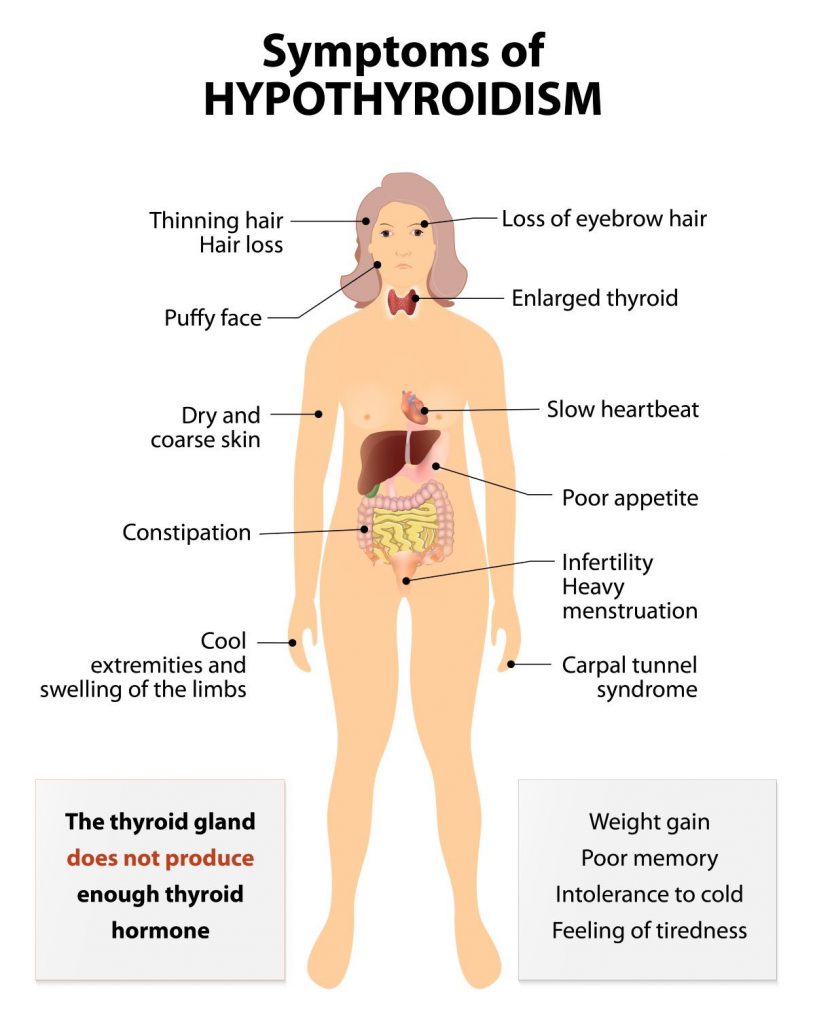When women in their 40s and 50s notice a drop in energy, changes to sleep patterns, an increase in depressed moods and unexplained weight gain, they often chalk it up to the beginnings of menopause – but could the real culprit be a thyroid disorder?

Hypothyroidism is a condition caused by an underactive thyroid not producing adequate levels of thyroid hormones. Some of the symptoms are very similar to those of menopause and, with thyroid disorders most likely to occur in middle-aged women, the two conditions can often be mistaken for each other.
Some researchers theorise that menopause may even exacerbate an underlying hypothyroidism condition and cause it to come to the fore. During menopause estrogen levels drop, and its estrogen that the thyroid glands rely on to promote healthy functioning. Other studies have shown that some women’s menopausal symptoms improve after undergoing treatment for hypothyroidism.
Classic symptoms of hypothyroidism include:
- Inability to concentrate and ‘fuzzy’ thinking
- Interrupted sleep
- Unexplained weight gain
- Increased sensitivity to cold
- Muscle weakness
- General lethargy or fatigue
- Hoarse voice and throat
- Face, and sometimes hands, look more ‘puffed up’ than usual
- Dry, flaky skin
- Constipation
- Irregular periods
- Hair loss.
If you’re experiencing the above symptoms the only way to know if it’s thyroid disorder, menopause or some other condition, is to be tested by a qualified health professional.
These very detailed tests of your thyroid functioning and hormone levels to give you a clear picture of any hormonal unbalances. The most important test will determine the balance of thyroxine (T4) and triiodothyronine (T3), two crucial types of thyroid hormones. The presence of adequate levels of T4 is very important however there must also by healthy levels of T3 in circulation to help T4 carry out its important work.
To help you feel like YOU again and if you would like to find out more information please contact me. 🌱 xo
